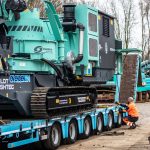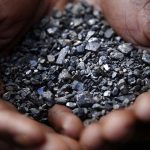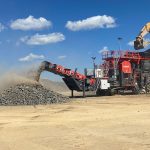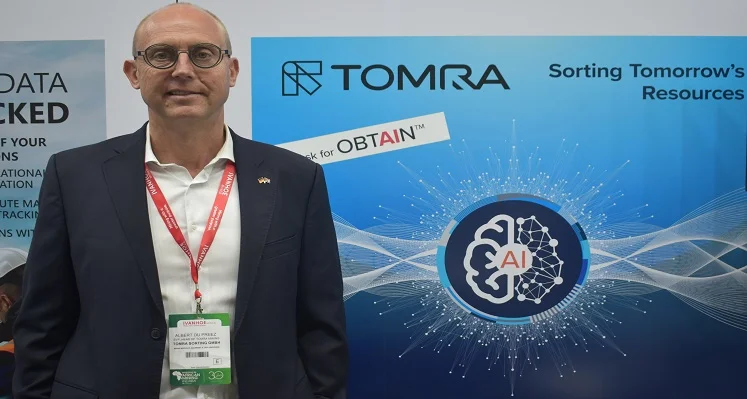Albert du Preez, head of TOMRA Mining, explains why the company’s new AI-powered OBTAINTM software heralds a new dawn in sensor-based sorting for mining operations
Delegates who attended this year’s Investing in African Mining Indaba conference in Cape Town were exposed to an agenda of ‘positive disruption’, with event organisers keen to encourage and germinate the changes the African mining industry requires to ensure its sustained growth and relevance on the global stage.
A central pillar within this theme was the role new technology would play in realising the potentially prosperous future of the continent, despite the trepidation that can often accompany such breakthroughs. In this field, few modern advancements better epitomise this predicament than artificial intelligence (AI), a tool that has undergone a rapid evolution in the last few years and one that has failed to permeate only a few industries across the globe. In one of the closing sessions of the conference in Cape Town within the Young Leaders in Mining Programme, AI and automation were put under scrutiny, with panellists vocalising how the rise of these assets is fundamentally changing the nature of mining work. While such a realisation can often be met with concern, the speakers were unanimous in their conviction that it is the nature of the industry to adapt and progress, making it imperative that the miners of tomorrow do not fear the continued development of AI and its cousins, but instead strive to grow with them.
A timely demonstration of the (positive) disruptive nature of AI was provided in Cape Town by German-based TOMRA Mining, an industry leader in the field of advanced ore sorting technology, which chose the Mining Indaba stage to reveal to the world its new TOMRA Deep Learning solution, OBTAIN. This latest innovation has been described as “ground-breaking software” delivered to enable an industry-first: single-particle precision in high-throughput ore sorting.
Speaking to African Review, du Preez surmised, “AI has been around for a long time, but now you have the brute force of modern computing capabilities to really let deep learning come into its own. You can see with ChatGPT how AI in general is transforming society and it is exciting to see how it is beginning to impact every aspect of life. For us, it is exciting to introduce OBTAIN and see how it will transform sensor-based sorting to add value to mining and processing, not to mention the sustainability benefits it will bring.”
Developed for use on the TOMRA XRT sorters, OBTAIN uses a Neuronal Network to accurately identify the properties of each particle independently of the sorter’s capacity, unlocking “unparalleled precision and reliability in detection and ejection.” Such capabilities allow mining organisations to enhance the throughput of the sorter while maintaining consistent sorting efficiency or improve sorting precision without compromising existing throughput.
“Deep learning improves our sorting efficiency and performance significantly,” du Preez explained. “OBTAIN, specifically, uses this to isolate particles and then conduct particle-by-particle decision making, independent of throughput. That means the yield and recovery performance is not a function of throughput or independent of throughput within a specific boundary condition. In the minerals processing environment, that implies there is consistent yield recovery performance independent of throughput. In short, that means we can double the throughput through sorters and get the same performance. That is quite special; a step-change using AI.”
Supporting a green future
In keeping with the mining industry’s evolving focus on sustainability, TOMRA Mining has been keen to point out the environmental benefits that this new software can bring such as (within the sorting process) enabling the processing of very low-grade materials that would have previously been discarded. Further, by effectively wielding vast amounts of data, it can provide mining operations with insights into a sorter’s performance and support predictive maintenance (advantages that also bring a monetary incentive).
Elaborating on this, du Preez said, “Sensor-based sorting enables us to remove waste, upgrade resources, reduce energy consumption and fundamentally improve the way we mine raw materials. If the base of the future circular economy is not more sustainable and with a low environmental footprint, then you are not really building a circular economy. For this future you need critical minerals and for that you need mining and to do this sustainably we must change the way we mine. Sensor-based sorting gives us the opportunity to fundamentally change the way we look at mining and improve on efficiencies in pursuit of this.”
Launched on African soil
With a global footprint, TOMRA Mining has already carved out a respectable name for itself on the African continent and boasts an installed base of around 60 sorters in various countries including Angola, Botswana, South Africa, Lesotho and Sierra Leone. With the introduction of OBTAIN and the capabilities it boasts, du Preez is confident that this will support the continued growth of the brand and an increased use of sensor-based sorting within the mining industry.
“Sensor-based sorting is still in the process of penetrating mining markets,” he noted. “It is in the recycling and food industries where it is well understood and used by virtually everybody. In mining it is slowly playing catch-up, and I think the introduction of AI will give us additional impetus to that market penetration and hopefully speed it up even further. The sorters are robust pieces of equipment with very high reliability and availability, and AI makes the processes even more robust. AI can really do the heavy lifting for you; just press the button and the sorter will do the rest.
“We are therefore excited about OBTAIN on a global level as we know it will make a significant improvement to sensor-based sorting performance. This will make a global impact and definitely will make a change in the African environment as well.”
Finally, du Preez concluded by emphasising that this is announcement is but one step along TOMRA Mining’s ongoing journey with AI and that the company plans to expand the capabilities of OBTAIN and its sensor-based sorting solutions. He remarked, “Life is about progress and this is certainly a step-change when it comes to deep learning opportunities. However, there is lots more to come with many avenues still to be explored such as around image recognition, shape recognition, and sorting decisions made on AI algorithms. So, certainly, I think in the next five years we will see some significant improvements and additions to the OBTAIN deep learning technology and that is certainly very exciting.”













